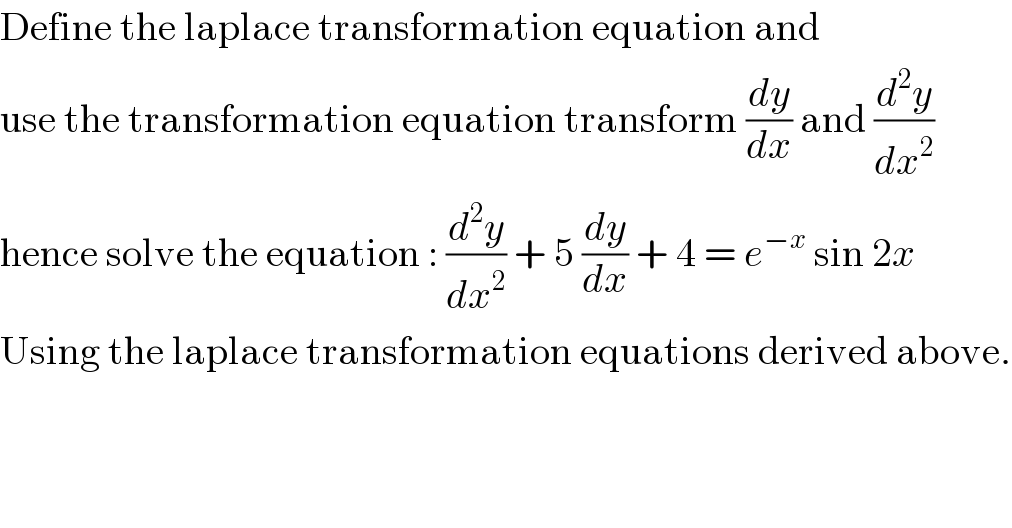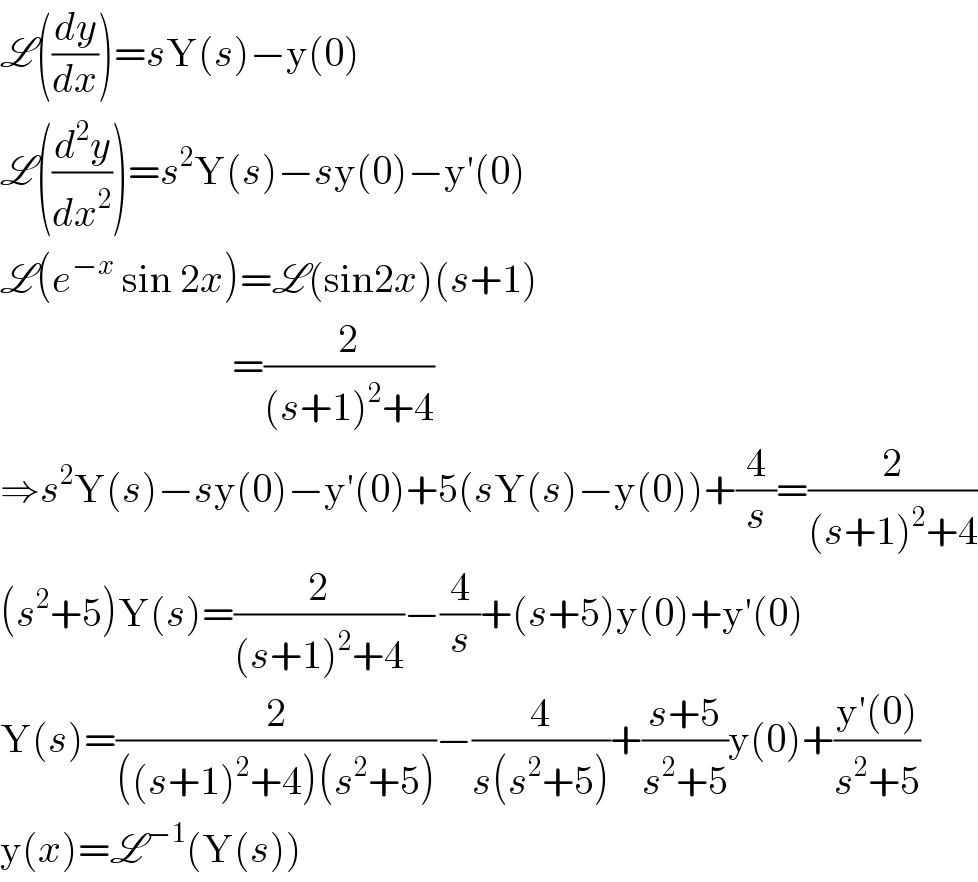
Question and Answers Forum
Previous in Differential Equation Next in Differential Equation
Question Number 110178 by Rio Michael last updated on 27/Aug/20

Answered by Aziztisffola last updated on 27/Aug/20

Commented by Rio Michael last updated on 27/Aug/20

